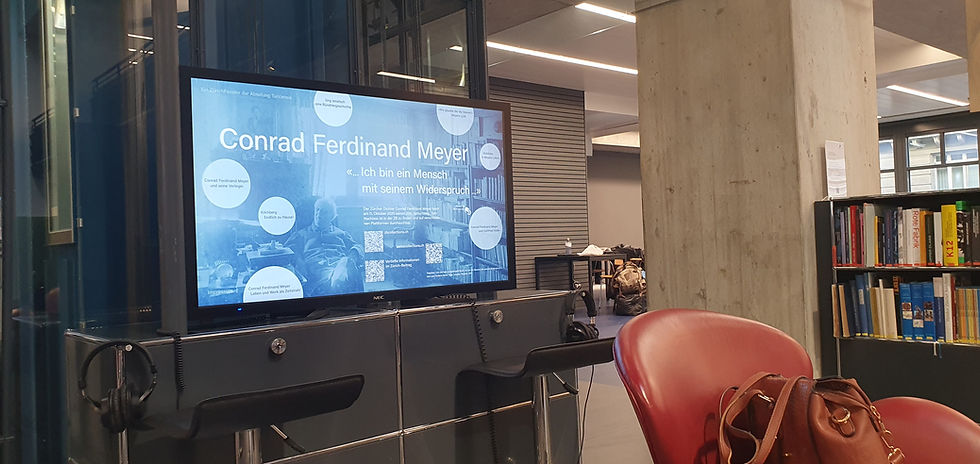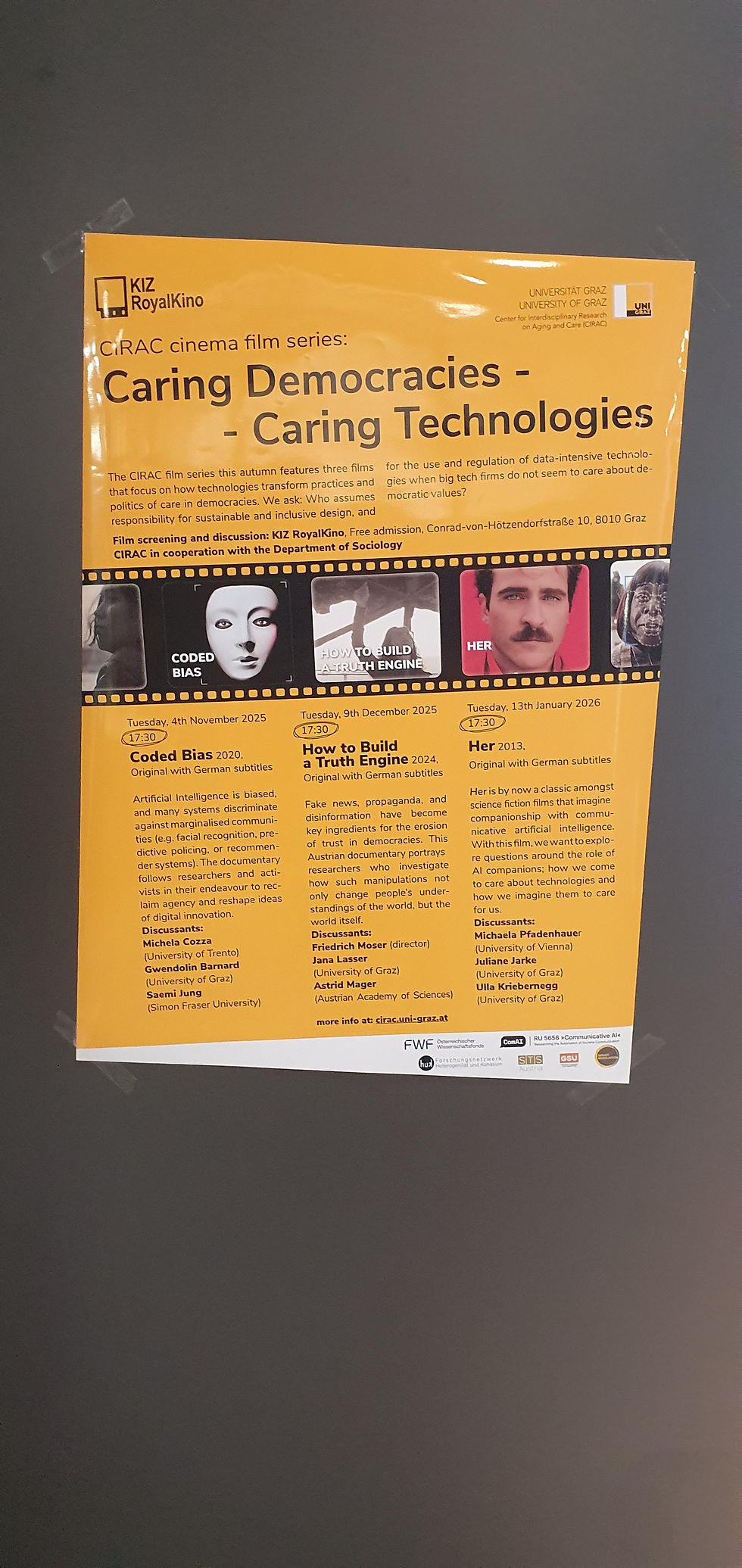ECCES 2025: Reflections from The European Conference on Critical EdTech Studies 2025
- Saemi Nadine Jung
- Nov 5
- 4 min read


Some experiences stay with you—and ECCES, the inaugural European Conference of Critical EdTech Scholarship (“Excess”), was one of them. Five months ago, I joined researchers from around the world, witnessing a scholarly community actively shaping an emerging discipline in real time.
In June, 2025, just after I wrapped my fieldwork in South Korea, I had the opportunity to attend the inaugural European Conference of Critical Edtech Scholarship (ECCES—pronounced like 'Excess'), a major gathering for researchers in this emerging field. The conference was packed with intellectually and emotionally stimulating panels and presentations, and it was my first experience witnessing how a scholarly community actively shapes the development of a discipline.
The conference was particularly dedicated to critical scholarship around:
Technological artifacts: Educational platforms, apps, AI, VR, data visualizations, and other digital tools.
Policy and governance: The role of governments, institutions, actor networks, and particular discourses in shaping edtech development and adoption.
Political economy: Business practices, capitalization, assets, value creation, corporations, Edtech industry, startups, edu-businesses.
Social justice and diversity: The impact of edtech on marginalized communities, the (re-)production of inequalities, and how edtech is (not) addressing heterogeneous or postcolonial audiences.
Learning, pedagogy and assessment: Types and visions of learning, teaching, pedagogy, and assessment enhanced or inhibited by interfaces, data analytics, and algorithmic modelling.
Ethical considerations: Privacy, surveillance, and the ethical implications of data-driven education.
Methodological approaches: The various ways in which Critical Edtech Studies can investigate and contribute to (re-)shaping edtech, including evolutions towards more participatory and co-design approaches.
Sustainability and planetary futures: The environmental impact of edtech, how it matters, and how it can be mitigated.
Histories of edtech: patterns and repetitions, hype cycles, persistent discourses, antecedents and early traces, hidden histories.
Future visions: Speculative futures, utopian and dystopian scenarios, alternative pathways for edtech development and education policy, literacy frameworks for professionalisation.
At the conference, there were 6-7 major categories:
1) Analysis of AI in practice,
2) Discourse and Governance,
3) Methodologies,
4) Learning Pedagogy, assessment, and teacher education,
5) Histories and Futures,
6) Social justice, sustainability, ethics and rights,
7) Political Economy
My presentation was in the Social justice, Sustainability, Ethics and Rights category.
Highights
Several sessions stood out to me.

Luci Pangrazio presented "Resisting the Googlization of Education," a multi-national participatory project (US, Australia, Spain, and Argentina) that explores resistance as a mode of critical engagement with educational technology.

Meenakshi Mani shared "EdTech Engineers and the Making of ML in Education," blending her own engineering background into an insightful inquiry. Particularly compelling was her exploration of "being stuck" — and the question of 'what does being stuck do for EdTech researchers?'

Carlos Ortegón's “Enthuse and inspire": Edtech brokers and the affective dimensions of techno-optimist imaginaries explored how edtech brokers provide training sessions and workshops to teachers to influence teacher professionality as well as creating an affective atmosphere.

The closing remarks by Felicitas Macgilchrist provided an excellent conclusion to the three-day event. By reflecting on what we mean by “critical” in the context of Critical EdTech Scholarship, her remarks offered a thoughtful review of the conference’s scope—highlighting what scholars are attempting to achieve at this moment, in this place, and collectively across the globe—and prompting reflection on how such work can contribute to shaping the world.
In my presentation, "Is AI-Textbook Good for Education? Refusal, Partnership, and Encountering EdTech Harms," I shared a case study from my doctoral research. Fresh from fieldwork in South Korea, I was thrilled to engage with European scholars and exchange perspectives on the rising trend of fully AI-centered public education. The discussions offered a fascinating glimpse into how many digital education policies are experienced and debated across different contexts.


After the conference wrapped up, I found myself craving some Korean comfort food and stumbled upon a delightful spot called Akaraka. The owner, a former opera singer, has transformed the space into a restaurant that comes alive in the evenings with music and performances. I stopped by for lunch and ordered a simple Dolsot bibimbap—a dish I always reach for when I need a bit of energy and warmth. The sizzling stone bowl, fragrant rice, and fresh vegetables felt like the perfect reset after an intense few days of sessions and discussions.

Afterwards, I took a short walk around the city, with just enough energy to soak in a little bit of Zurich. As a junior scholar, attending conferences often isn’t a luxury. It’s a careful balancing act between physical demands and making the most of limited time. One has to be mindful about how to manage energy and take care of oneself, especially after a grueling long-haul international flight.


Looking ahead
Coming back from ECCES, I felt both inspired and challenged. My laptop notes were full of new ideas and questions, brimming with new ideas and questions I was eager to explore. It was fascinating to connect the names of scholars I had previously only read in papers with their real-life presence. Attending this inaugural conference provided an excellent opportunity to engage with the broader Critical EdTech Scholarship community and to better situate my research within current scholarly debates. I returned with a deeper understanding of where the field is heading and renewed motivation to incorporate these insights into my ongoing work in Vancouver where I am based in.



Comments